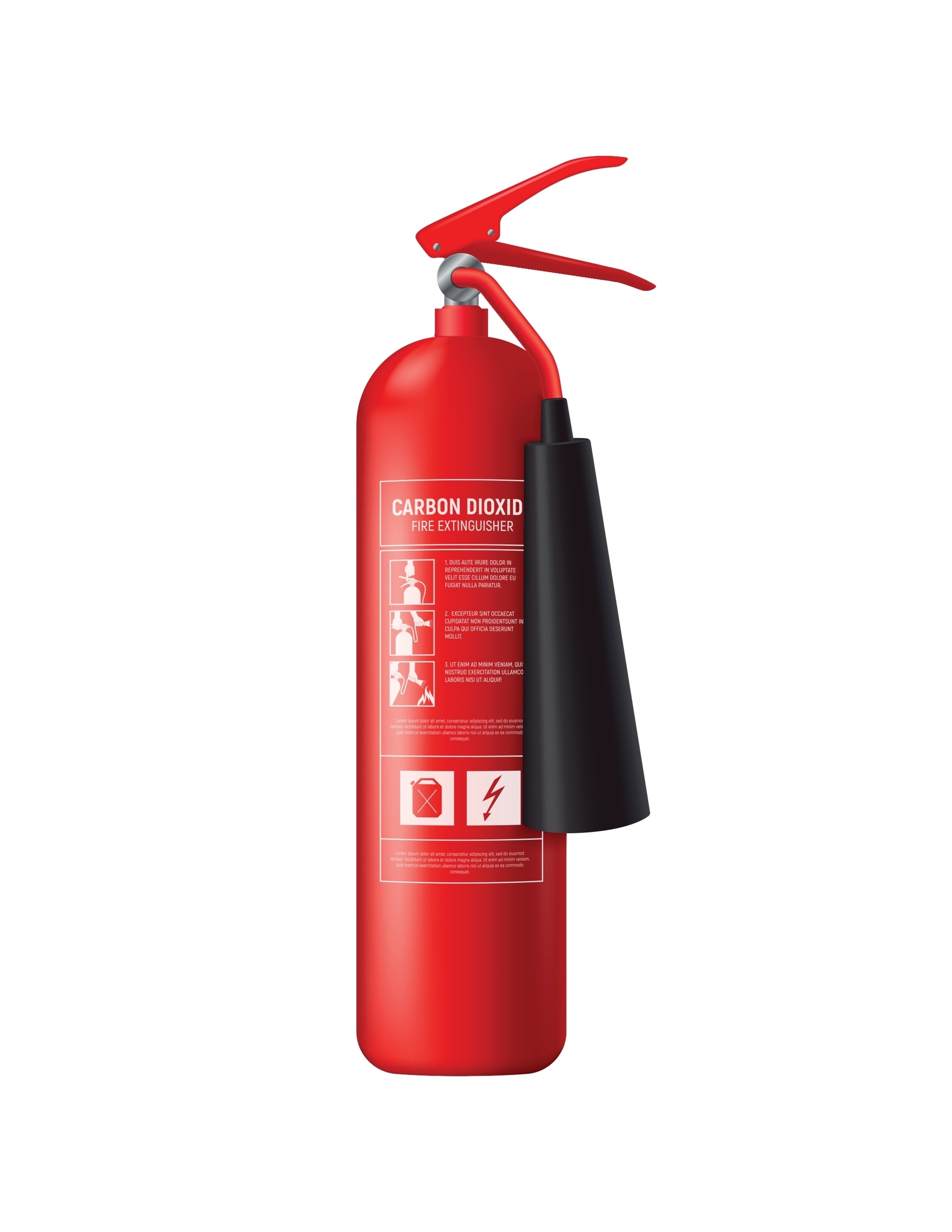Kingsgrove Branch:
What Fire Extinguisher for Electrical Fires

Right then, let's talk about something a bit serious but crucial for every Aussie home and business: tackling electrical fires. Unlike your regular paper or wood fire, electrical fires need a different kind of attention. Chucking water on one? Crikey, that's a recipe for disaster!
So, if you're scratching your head wondering "what fire extinguisher do I need for electrical fires?", you've come to the right place. Here at SCHNAP electrical wholesaler, we're all about keeping you safe and switched on with the right information. Let's dive into the extinguishers you need to keep those pesky electrical sparks from turning into a full-blown blaze.
Why Electrical Fires Are Different (and Dangerous!)
Before we get to the extinguishers, it's important to understand why electrical fires are a different beast altogether:
- Conductivity: Water is a fantastic conductor of electricity. Using a water-based extinguisher on a live electrical fire can send that current right back at you, leading to severe shock or even worse.
- Hidden Sources: Electrical fires can often start behind walls or in appliances, making it tricky to pinpoint the exact source and fully extinguish the flames.
- Toxic Fumes: Burning electrical components can release harmful and toxic fumes, adding another layer of danger.
The Right Tools for the Job: Non-Conductive Extinguishers
The key to tackling an electrical fire safely is to use a non-conductive extinguishing agent. Here are the common types you'll find in Australia that fit the bill:
- Carbon Dioxide (CO2) Extinguishers: These are a top choice for electrical fires. CO2 works by smothering the fire and displacing the oxygen it needs to burn. It's a clean agent, meaning it doesn't leave behind any messy residue that can damage sensitive electronic equipment. You'll often spot these in offices, labs, and areas with lots of electrical gear.
Dilisensikan oleh Google
- Dry Chemical Powder (ABE) Extinguishers: These are your general-purpose extinguishers and are effective on classes A (ordinary combustibles), B (flammable liquids), and E (electrical) fires. The powder works by interrupting the chemical reaction of the fire. While effective, they can leave behind a powdery residue that might require cleanup, especially on electronics.
- Clean Agent Extinguishers (e.g., Halotron, FM-200): These extinguishers use synthetic gases that are non-conductive and leave little to no residue. They are very effective on electrical fires and are often preferred in areas with valuable or sensitive electronic equipment like computer rooms and data centres. While generally more expensive, their clean nature can save you from costly post-fire cleanup and damage.
What NOT to Use on an Electrical Fire: Steer Clear Of These!
It's just as important to know what not to use on an electrical fire:
- Water Extinguishers (Class A): Absolutely do not use water on an electrical fire! As we mentioned, water conducts electricity and puts you at serious risk.
- Foam Extinguishers (AFFF): While effective on flammable liquids, most foam extinguishers contain water and are not suitable for electrical fires.
Aussie Safety First: Best Practices for Electrical Fires
Knowing the right extinguisher is only part of the equation. Here are some crucial safety tips to keep in mind:
- Prioritise Safety: Your safety is paramount. If the fire is large or you don't feel confident tackling it, evacuate immediately and call emergency services (000 in Australia).
- Turn Off the Power: If it's safe to do so, try to disconnect the power source to the affected equipment or the entire area. This will help to stop the electrical flow and make the fire safer to extinguish.
- Aim Correctly: When using an extinguisher, aim at the base of the flames and use a sweeping motion to cover the burning material.
- Keep a Safe Distance: Maintain a safe distance from the fire while you're trying to extinguish it.
- Regular Maintenance: Make sure your fire extinguishers are regularly inspected and maintained to ensure they are in good working order.
Be Prepared, Be Safe: It's the Aussie Way
Electrical fires can happen unexpectedly, so being prepared is key. Make sure you have the right type of fire extinguishers readily accessible in your home and workplace, and that everyone knows where they are and how to use them.
Stay safe and keep those sparks where they belong!
Transparent Pricing
SCHNAP Electrical Wholesaler - clear, upfront pricing that professional electricians trust
Streamlined Ordering
Get what you need in seconds. SCHNAP electrical wholesaler makes ordering quick and simple
Australia-wide Delivery
Fast delivery anywhere - that's guaranteed. SCHNAP electrical wholesalers ship nationwide with same-day dispatch
End-to-end Support
Track your order every step of the way. SCHNAP electrical wholesale keeps you updated from click to delivery

Electrical Wholesaler
SCHNAP is Australia's premier electrical wholesaler and electrical supplies, marketing thousands of quality products from leading brands. Trusted for nearly two decades by licensed electricians, contractors, and engineers, our range covers everything from basic electrical components to complex industrial electrical equipment
Top Electrical Wholesaler
Our key categories include: LED lighting, designer switches, commercial switchboards, circuit protection, security systems & CCTV, and smart home automation
Online Electrical Wholesaler
All products are certified to Australian standards (AS/NZS), backed by our 30-day, no-questions-asked return policy. Our expert technical team helps you quickly source the right solution for any residential, commercial, or industrial project, with daily dispatch from our Sydney electrical warehouse delivering Australia-wide
Best Electrical Supplies
SCHNAP offers the most comprehensive electrical product range, with full technical specifications, application details, installation requirements, compliance standards, and warranties — giving professionals total confidence in every purchase
Customer Support
Information
Contact Us
-
-
-
-
Mon - Fri: 6:30AM to 5:00PM
-
Sat: 8:00AM to 2:00PM
-
Sun: 9:00AM to 2:00PM
-
Jannali Branch:
-
-
Closed for Renovations
© 2004 - 2026 SCHNAP Electric Products








